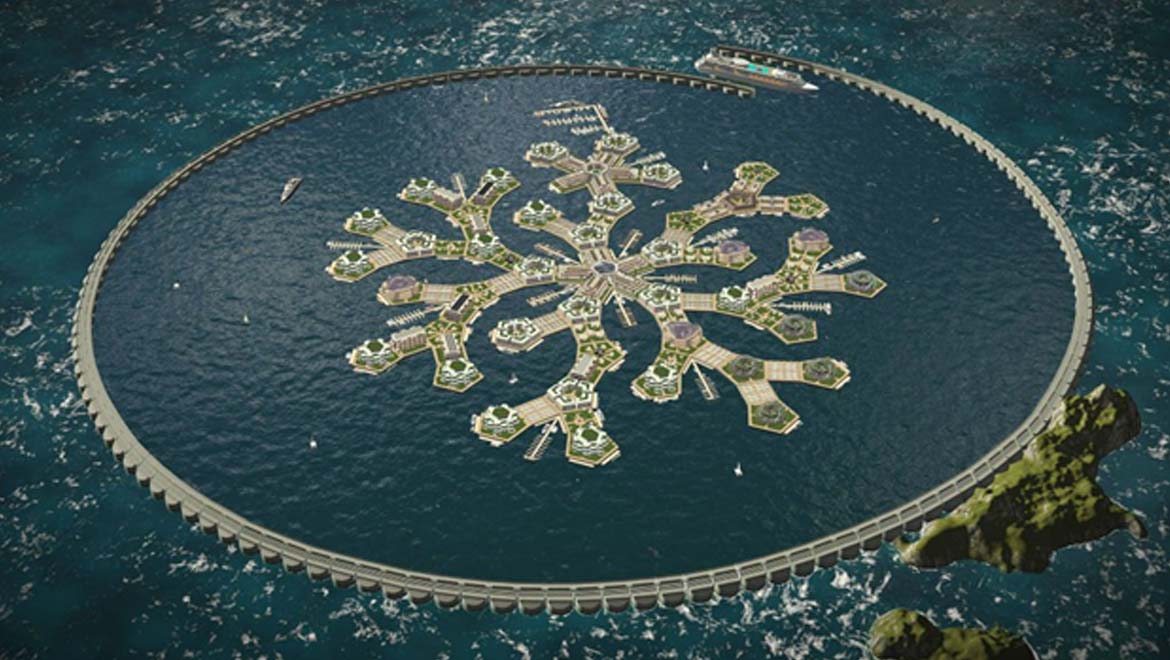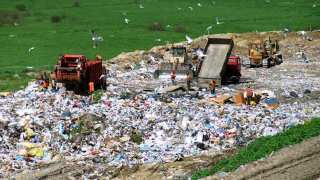The ill-effects of climate change are a horrific dream which will soon become a reality in our near future. In fact, some of these consequences are already being witnessed. One of the root causes of our changing climate is man and his whims. It has been predicted by researchers that sea levels are rising at an exponential rate, with the major contributing factor leaning towards global warming.
This especially affects residents in coastal areas and islands. It is this very same prospect that also threatens communities in the French Polynesia, where it is believed more than half of the land could be lost to the sea. So, earlier this year, it was proposed by the government to build floating cities over the waters of the South Pacific Ocean.
Inspiration from Asia and Europe
Countries like Singapore and Norway, formed a cooperation and are already way ahead in this technological area. Their progress is highly motivating for the rest of the world. Research organizations like SINTEF and NTNU are in the process of employing the sea surface for several purposes such as storing gas and oil underground, housing and settlements and for manufacturing too. As of now, there is a blueprint for a six-storied establishment with stores, roads, railway tracks, parking, water storage, and even one layer for defense facilities.
The co-op head and professor C.M. Wang of the University of Queensland expressed his ideas when he said, “We want to exploit sea, land and air to a much greater extent than we do today, both for housing, manufacturing and transport purposes. We have already prepared a plan for how we can use the subsurface to a greater extent.”
The Plan For French Polynesia
The French Polynesia, the most populated of the lot, currently comprises of 76 inhabited islands, all of which are being considered during the building of the floating cities, models of which are scheduled to be ready by 2018-19.
In collaboration with the Seasteading Institute in San Francisco, CA, and the state, the development of sea-borne communities, known as a seastead, is going to be attempted near Tahiti. This is foreseen to be near the shores, away from the raging waters of the sea. The pilot setups will be in a portion of sheltered waters rather than in the middle of the ocean. The Tahitian location was chosen, as Director Randolph Hencken mentioned, for its security, respectful people and beauty. In another statement by him, he has shared a sentiment of how this project could relocate locals during floods and storms without too much difficulty. It has been indicated that these innovative cities, about 2500sq/m in size, are going to be self-sufficient, especially in terms of water, food and energy.
Challenges of Floating Cities
There could be some conflict in the governance of these dwellings as, presently, the entire plan involves guidelines curated by the contractors to be approved the government of the French Polynesia and the domestic authorities too. Former minister, Marc Collins, was quoted saying, “Tahitians are sick and tired and hearing of these mega, massive projects that go nowhere,” and urges to expect hesitancy and negative reactions from this.
Although the design is partly finalized, the nature of the outcome, architecturally, is still a question because, after all, they were drawn and sketched out digitally. A claim by the builders is sustainability by reducing carbon footprints and fossil fuels. But can such communities live up to this environmental standard? Along with this, there are talks of probable social and economic concerns as an undertaking so large requires constant revenue for maintenance even though floating cities could boost tourism status.
Having said that, we’re all in to vacation on these fantastic-looking “world’s first” futuristic habitats, aren’t we?
Top image by The Seasteading Institute
References:
Snofugl, I. (2017), Gemini, https://geminiresearchnews.com/2017/05/floating-cities-will-soon-be-a-reality/, (accessed 25 May 2017)
BBC News (2017), http://www.bbc.com/news/world-asia-38647174, (accessed 26 May 2017)
Science Alert (2017), http://www.sciencealert.com/french-polynesia-just-revealed-plans-to-build-the-world-s-first-floating-city, (accessed 26 May 2017)
Merchant, B. (2015), Motherboard, https://motherboard.vice.com/en_us/article/by-2100-everything-you-know-about-the-ocean-will-be-wrong, (accessed 26 May 2017)
Griffiths, J. (2017), The Sun, http://www.news.com.au/finance/stunning-plans-unveiled-for-worlds-first-floating-city-in-french-polynesia/news-story/bdb80f72498b07a71d86409d0a5caf56, (accessed 30 May 2017)







No comment